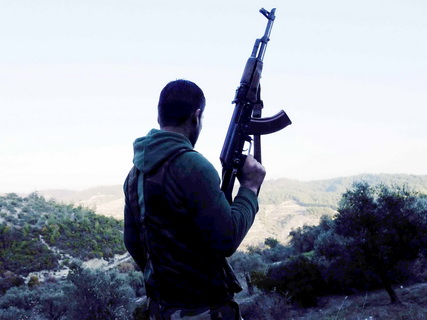With the release of America’s National Intelligence Estimate, according to which Iran has suspended its nuclear weapons program, the prospect of military confrontation with the Bush administration dimmed. But months later, it is clear that the danger is not past, because Iran has not renounced the production of nuclear weapons, which its enriched uranium could eventually be used to fuel.
All parties need to find a formula to resolve the issue before it again threatens to erupt into conflict. Western diplomacy in recent years has focused on Iranian President Mahmoud Ahmedinejad as the key to resolving the crisis. But this approach is a blind alley.
Let us recall the fate of Ahmedinejad’s two immediate predecessors. Muhammad Khatami (1997-2005) tried to implement dramatic political reform, while Akbar Hashemi Rafsanjani (1989-97) tried to open the Iranian economy to the West. Both failed, because Iran’s presidents do not run the country. A solution to the nuclear dilemma – or any other problem in Iran’s foreign relations – is in the hands of the Supreme Leader, Ayatollah Ali Khamenei.
Among his responsibilities, Khamenei serves as commander-in-chief of the military, controls the intelligence services, and appoints directors of the national media. His appointees effectively control most ministries and Iran’s major cities.
In diplomacy, Khamenei tends to operate in a clever but recognizable fashion. He sends different diplomats into negotiations with contradictory instructions. Each claims to be acting with the Supreme Leader’s full authority, but ultimately are unable to make commitments because they have little idea of what Khamenei wants to do. After a time, they are removed, and a new set of representatives is dispatched.
In order to dominate decision-making, Khamenei prefers weak presidents. Ahmedinejad is no different. His political base has faded, owing to Iran’s deepening economic crisis, which has been intensified by the conflict with the West over the nuclear issue. His support in the parliamentary election next March seems particularly weak, which will no doubt please Western observers. But the election results will not matter: parliament, too, has little influence over Iran’s foreign policy.
Some Western diplomats recognize the Supreme Leader’s role. In practice, however, Western diplomacy tends to ignore Khamenei, who sabotages any effort to get around him as the final arbiter of Iranian policy. This might partly explain why Khamenei has been mistrustful of negotiations with the West. Westerners don’t seem to understand who is in charge. Indeed, some analysts argue that former President Bill Clinton’s efforts to achieve a breakthrough with Iran failed because they were addressed to Iran’s presidents.
The West should learn from the example of Russian President Vladimir Putin, who did not travel to Iran until he was allowed a direct meeting with Khamenei, during which Putin is reported to have made a proposal to end the nuclear stand-off. There has been no answer yet, though there does seem to be some recent movement between Russia and Iran on the provision of nuclear fuel for Iran’s controversial reactors.
To be sure, Khamenei is reluctant to meet with non-Muslim foreign leaders. But that shouldn’t stop the West from reaching out to him directly, or pressing him to publicly appoint the representatives who negotiate with the West.
One American politician who understands how to work with the Iranian power structure is former Congressman Lee Hamilton, now head of the Woodrow Wilson Center. When Wilson Center researcher Haleh Esfandiari was arrested in Iran, Hamilton wrote to Khamenei, pleading for her release on humanitarian grounds. Khamenei responded – reportedly the first time he answered an American – and Esfandiari was released in a matter of days.
Khamenei would be hard-pressed to ignore a direct invitation from the US to negotiate on Iran’s most vital concerns. His clear priority is the Islamic Republic’s survival, not the fate of particular Iranian politicians. While Ahmedinejad’s apocalyptic vision makes it difficult for westerners to deal with him, Khamenei does not want to stumble into a military confrontation with the West, which would destabilize Iran and possibly lead to the regime’s downfall.
To resolve outstanding issues with Iran, the West should be dealing with the only person powerful enough to make deals and deliver concessions. That person is Khamenei, not Ahmedinejad.
Mehdi Khalaji, who studied for 14 years in seminaries in Qom, Iran, is a visiting fellow at the Washington Institute for Near East policy. This commentary is published by DAILY NEWS EGYPT in collaboration with Project Syndicate (www.project-syndicate.org).
